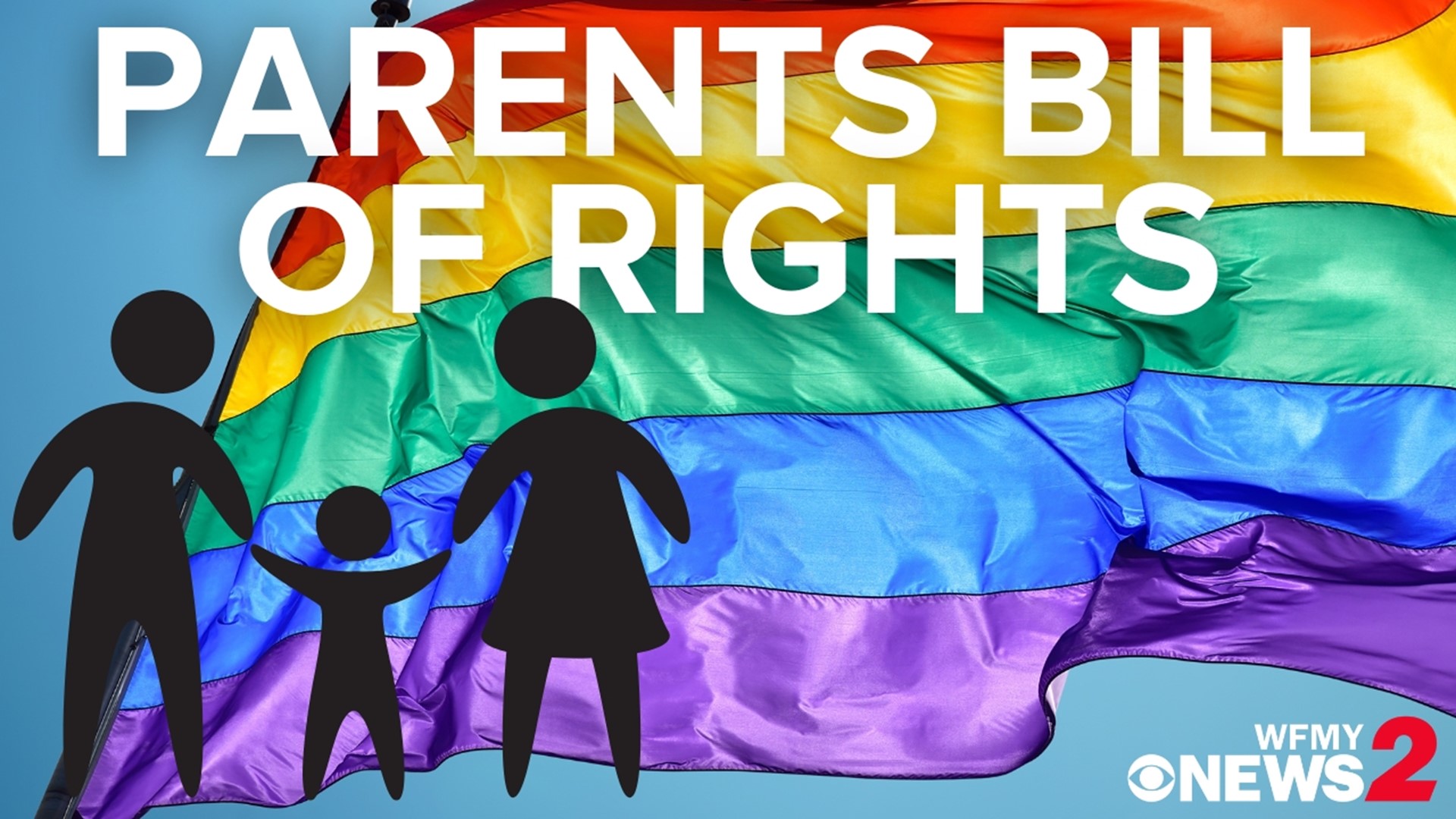GREENSBORO, N.C. — Public school teachers in our state could be required to notify parents before they call a student by a different name or pronoun.
This would be a stipulation under the "Parents' Bill of Rights" that passed the republican-controlled senate Tuesday.
Some lawmakers believe the bill could endanger some LGBTQ students who do not have support at home.
Sponsors of the bill believe it's needed in order to help keep parents informed on what their children are being taught in school.
The proposal, which passed the Senate 29 to 18, would also ban teachers to talk about gender identity and sexuality in K-4 classrooms, with an exception for “student-initiated questions.”
Alex Lounsbury is a teen in Forsyth County and said he is afraid of the Bill.
“Could be impacted through possible abuse and neglect with unsupportive families and at school, as a K-12 student you’re told to have trusted adults like family and teachers. If you take both of them off that list who do you have left?” Lounsbury said.
Now, the Bill heads to the House.
Republicans are one seat shy of a supermajority and would need some Democratic support to push it through.
A similar version of this bill passed the Senate last session but didn't get a vote in the House.
Bill sponsor Sen. Amy Galey, an Alamance County Republican, refuted criticisms Tuesday that it might jeopardize the physical safety of transgender and nonbinary students who could be outed to their parents without consent. She pointed again to an exception in the bill that would keep parents from accessing school records if there’s reason to believe it would lead to abuse or neglect.
"Parents have rights that we do not give up when we send our kids to government-run schools. Parents are not an afterthought in public education," said Amy Galey.
Senate Democrats criticized the measure during floor debate, they and their House counterparts have offered an alternative bill they say protects both parents and students without putting LGBTQ children at risk.
Lawmakers in at least 23 other states are considering similar bills, constitutional amendments, or both.
Democratic Gov. Roy Cooper told reporters Tuesday morning that he's concerned the North Carolina bill could have similar economic consequences to a 2016 bill that had restricted transgender access to public restrooms and blocked cities from enacting new anti-discrimination ordinances.
That measure, which has since been rolled back, cost North Carolina hundreds of millions in revenue as businesses, athletic tournaments, and conventions cut ties.
Sen. Michael Garrett, a Guilford County democrat weighed in as well.
"Gov. Cooper said he would veto it if it got to his desk because he was worried it would harm children, and our ability to attract top-tier companies to our state," said Michael Garrett.
Senator Galey doesn't think that's the case.
“Businesses are willing to go all over the world to do business with China to do business with Saudi Arabia, the Middle East, and other countries that have absolute contempt for human rights. And to think that North Carolina would be treated differently because we care about the mental health and well-being of our children and want our families to talk to each other and to provide an environment where parents are supported, notified of their rights, and encouraged in figuring out how to use them that’s just not right,” Senator Galey said.
House Speaker Tim Moore told reporters on Monday that prospects looked promising in his chamber but that he didn’t anticipate the measure would be fast-tracked. He said discussions so far within the House have been broad and suggested that another version of the measure could be proposed.
Moore has said he expects some democrats will join republicans to complete veto overrides this session, but he hasn’t identified the topics on which they could. Democratic unity has yet to be tested by an override vote this session.

